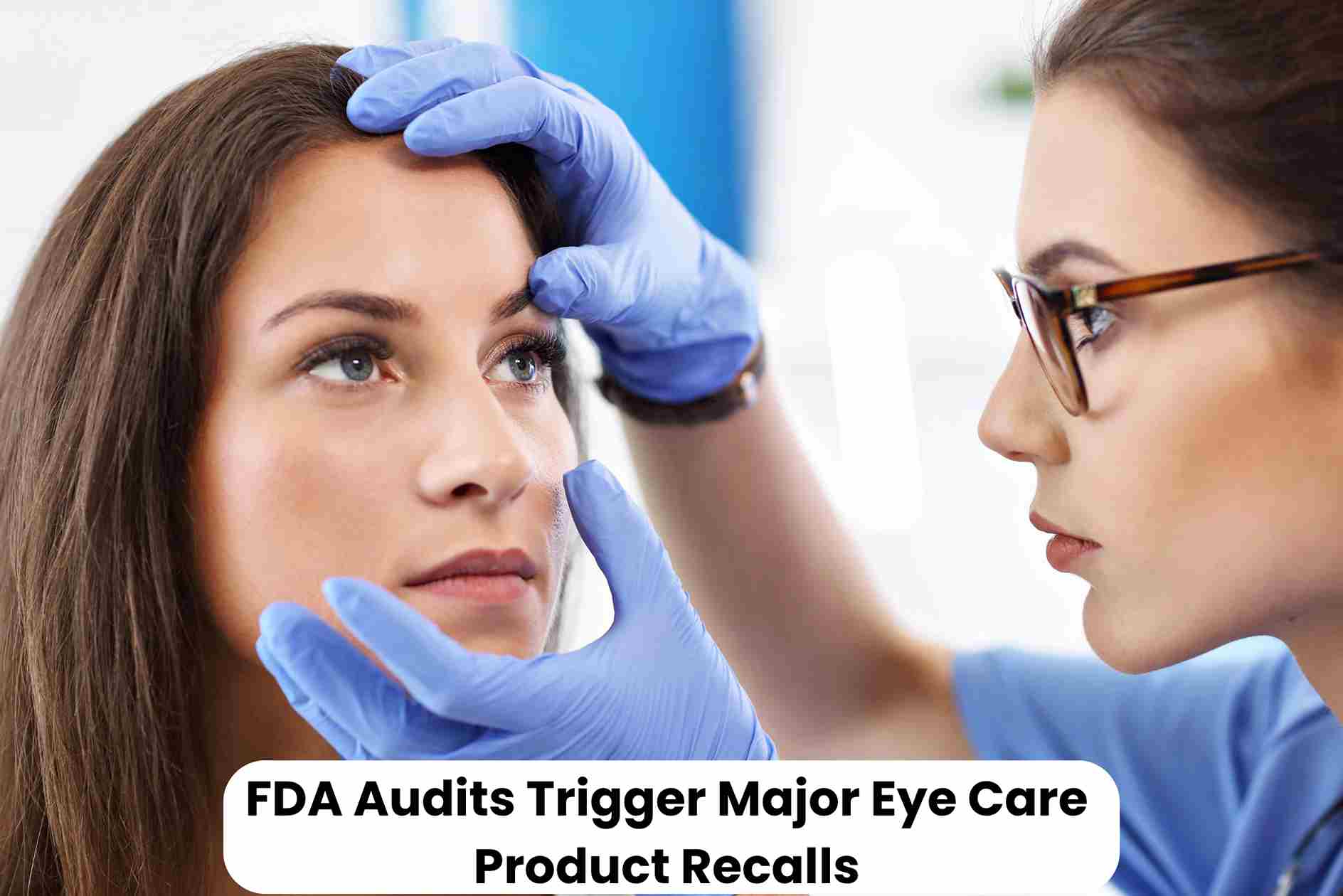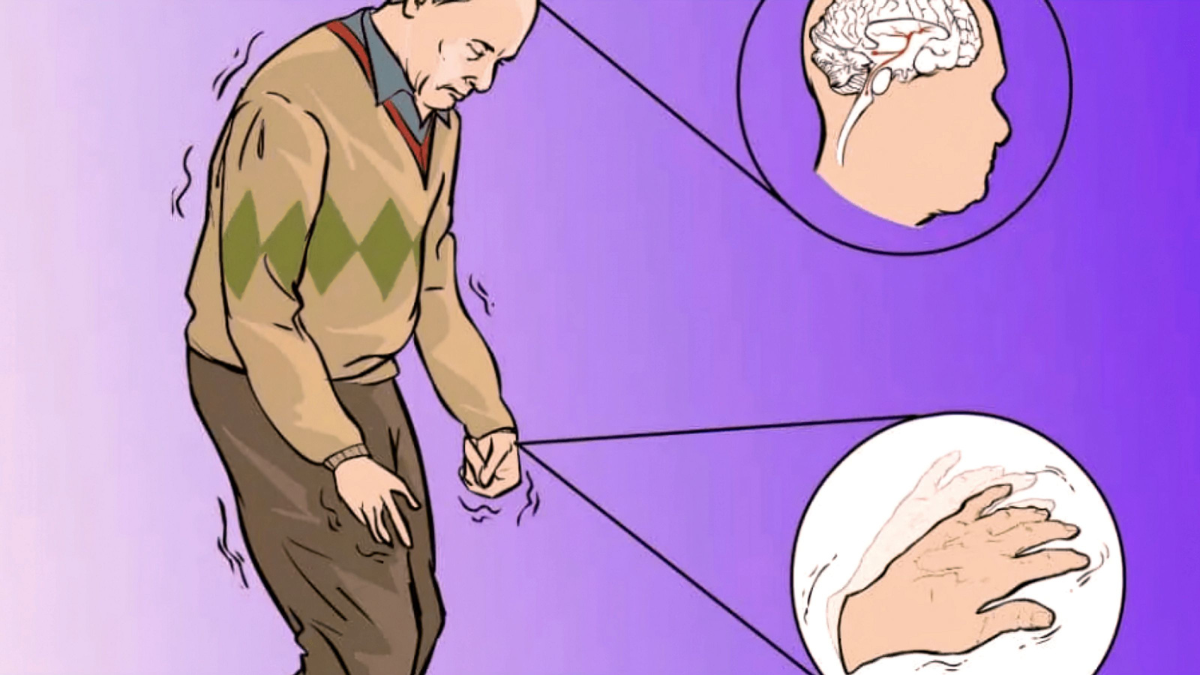Our eyes are delicate organs that require specialized care, and millions of people depend on eye drops, artificial tears, and other ophthalmic solutions to maintain their eye health. However, when these products are not manufactured properly, the consequences can be severe. Recent FDA audits have uncovered alarming issues with several eye care products, leading to major eye care product recalls across the U.S.
This article offers a comprehensive overview of the growing trend of ophthalmic product recalls, the FDA’s role in inspections and audits, and what these developments mean for everyday consumers concerned about artificial tears safety and eye drop contamination.
Table of Contents
ToggleWhat Are Eye Care Products and Why Are They Regulated?
Eye care products are designed to relieve discomfort, treat eye conditions, or improve vision. Common types include:
- Lubricating drops for dry eyes
- Antibiotic solutions to fight infections
- Steroid eye drops for inflammation
- Contact lens cleaning solutions
- Prescription glaucoma medications
Because these products come into direct contact with sensitive eye tissue, strict quality control and sterility are essential. Even minimal contamination can cause eye infections or irreversible vision damage, highlighting the importance of FDA inspection and regulation.
When and Why Are Eye Products Recalled?
An eye care product recall occurs when a defective or potentially harmful product is removed from store shelves. FDA recall actions usually result from:

- Contamination with bacteria or fungi
- Manufacturing in unsanitary environments
- Use of incorrect or unapproved ingredients
- Packaging flaws compromising sterility
- Non-compliance with FDA labeling or safety guidelines
The FDA classifies recalls into three categories:
- Class I: Severe risk of serious injury or death
- Class II: Moderate health risk
- Class III: Low risk or labeling issues
The Role of FDA Audits and Inspections
The U.S. Food and Drug Administration (FDA) protects consumers by regularly conducting FDA audits and surprise inspections at drug manufacturing sites. These inspections focus on:
- Cleanliness and sterilization procedures
- Quality control and assurance protocols
- Compliance with Good Manufacturing Practices (GMP)
- Documentation and record-keeping
- Handling of complaints and adverse reports
If serious violations are found, the FDA can initiate an ophthalmic product recall, request changes, or impose penalties. The audit process plays a critical role in preventing eye infection risk and ensuring public safety.
Recent Major Eye Care Product Recalls
Here is a summarized table of some recent eye care product recalls due to FDA audits:
| Product Name | Manufacturer | Reason for Recall | FDA Classification | Health Impact |
|---|---|---|---|---|
| EzriCare Artificial Tears | Global Pharma | Bacterial contamination (Pseudomonas aeruginosa) | Class I | Vision loss, infections, 4+ deaths reported |
| Delsam Pharma Eye Ointment | Global Pharma | Lack of sterility assurance | Class I | Risk of eye infection |
| Brimonidine Tartrate Drops | Apotex Corp. | Cracked bottle caps compromising sterility | Class II | No injuries, potential contamination risk |
| Purely Soothing 15% MSM | Pharmedica USA | Non-sterile production conditions | Class I | Potential for vision damage |
| LightEyez MSM Eye Drops | LightEyez Ltd (UK) | Unapproved ingredient (trolamine salicylate) | Class I (U.S.) | Risk of toxicity and eye irritation |
Case Study 1: EzriCare Artificial Tears Recall
EzriCare’s artificial tears were linked to a bacterial outbreak, causing cases of blindness, hospitalization, and death. The FDA audit found severe sanitation lapses, confirming batches were contaminated and distributed nationwide. This Class I recall emphasized the dangers of ignoring artificial tears safety standards.
Case Study 2: Apotex Brimonidine Tartrate Eye Drops
Apotex recalled glaucoma eye drops after FDA inspection revealed cracked caps compromising sterility. While no injuries occurred, the recall served as a warning about packaging flaws and their potential consequences.
Why These Eye Care Product Recalls Matter
Unsafe eye products pose significant risks:

- Corneal infections
- Permanent vision damage
- Eye inflammation
- Systemic infections in immunocompromised patients
Given the recurring use of these products, consistent exposure to contamination magnifies the danger. Hence, FDA recall databases play a vital role in tracking and responding to emerging threats.
How Consumers Can Stay Safe
To protect your eye health, follow these steps:
- Check FDA Recall Alerts: Visit the FDA recall database for the latest updates.
- Inspect Packaging: Look for broken seals, strange odors, or cloudy liquids.
- Store Products Properly: Follow storage instructions on the label.
- Keep Original Packaging: Helps identify affected lots.
- Report Adverse Effects: File a complaint through the FDA MedWatch system.
What Happens After a Recall?
When a recall is issued:
- Manufacturers notify retailers and consumers
- Faulty products are removed
- Root cause investigations begin
- FDA monitors corrective actions
Severe violations can lead to lawsuits, financial losses, and even bans from selling eye care products.
The Cost of Ignoring FDA Audit Results
FDA audit failures can damage company reputations and finances:
- Loss of customer trust
- Legal action and settlements
- Plummeting stock value
- Regulatory sanctions
The EzriCare case has sparked multiple lawsuits alleging negligence and lack of oversight.
FDA Tightens Oversight on Eye Care Industry
Due to increased eye drop contamination risks, the FDA is now:
- Conducting more frequent FDA inspections
- Demanding stricter sterility tests
- Working with international bodies
- Enhancing import screening processes
With artificial tears and ophthalmic product recalls rising, the FDA aims to detect issues before they reach consumers.
The Growing Eye Care Market — And Its Responsibility
The demand for eye products is growing due to:
- Increased screen usage
- Aging demographics
- Rise in dry eye and glaucoma cases
With market growth comes responsibility. Manufacturers must prioritize compliance to avoid FDA enforcement and protect public health.
Final Thoughts
The surge in FDA audits and eye care product recalls is a wake-up call for both companies and consumers. While regulators strengthen oversight, users must remain informed and cautious. Trust only those products that pass FDA inspection, follow GMP, and put your eye health first.
Importance of Nutrition in Eye and Overall Health
Nutrition plays a vital role in maintaining not just overall well-being but also optimal eye health. A balanced diet rich in vitamins A, C, E, and omega-3 fatty acids helps prevent vision problems like macular degeneration and dry eyes. Proper nutrition supports the immune system, reduces inflammation, and ensures that the eyes function at their best throughout your life.








